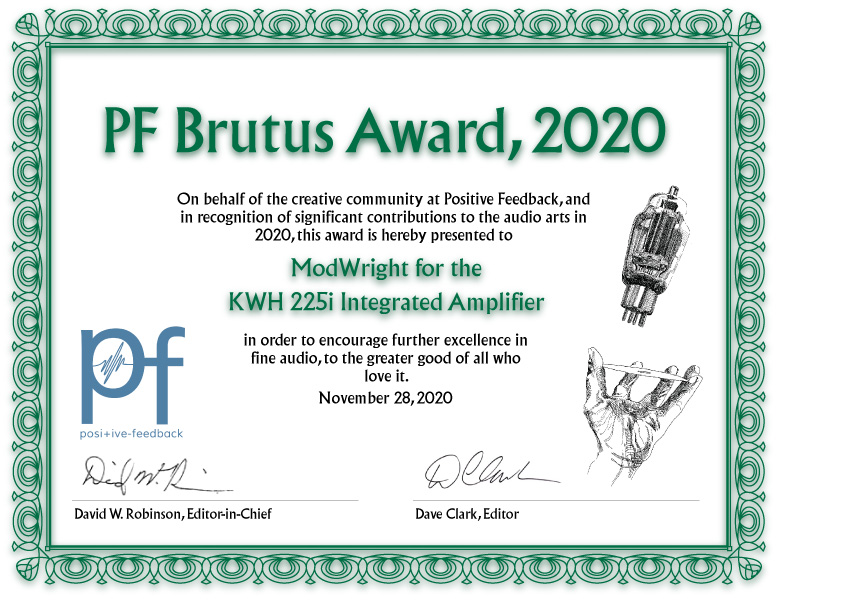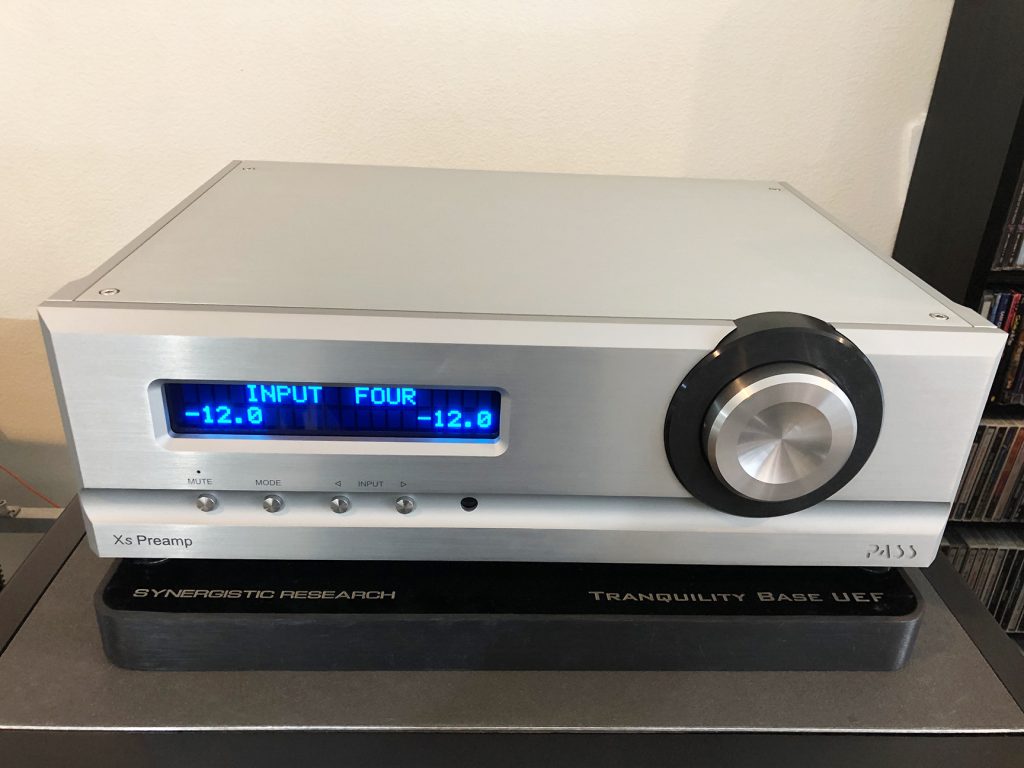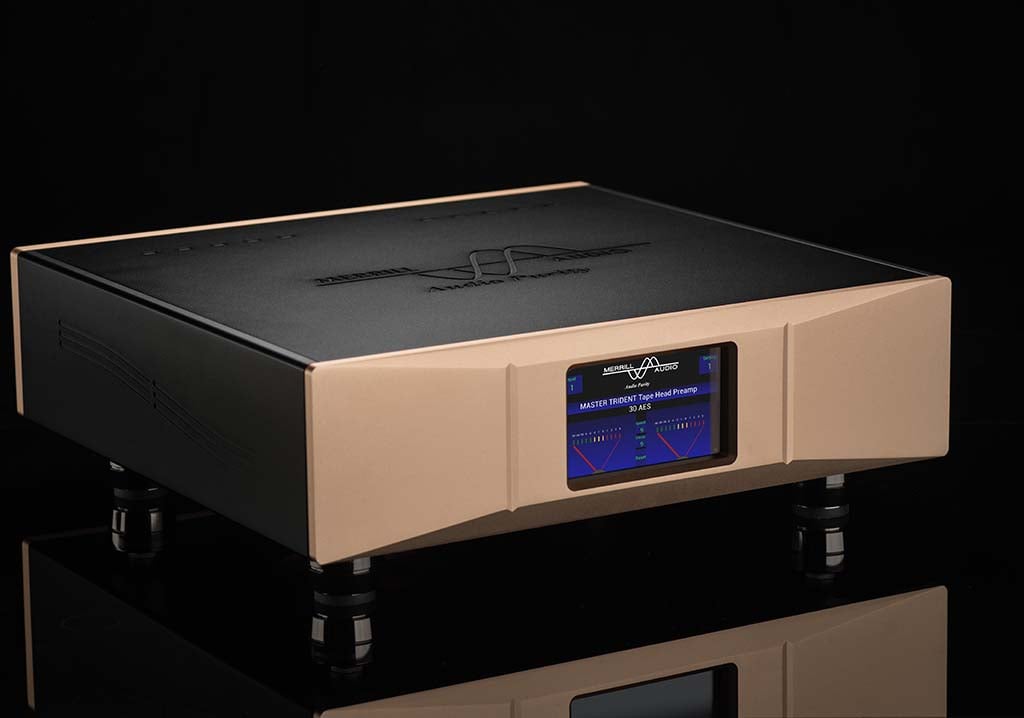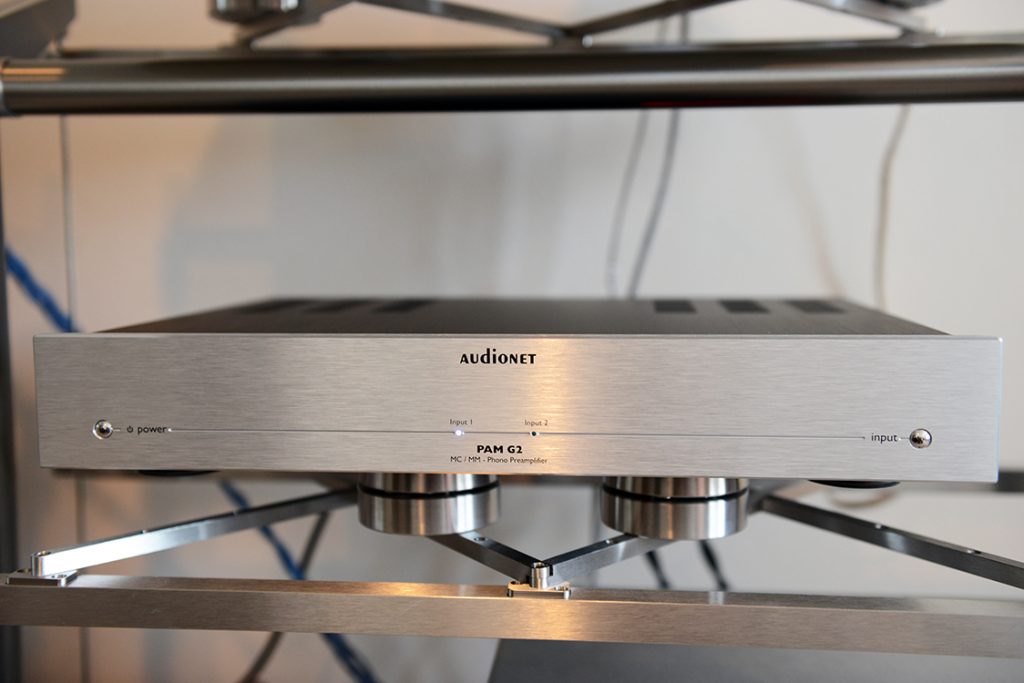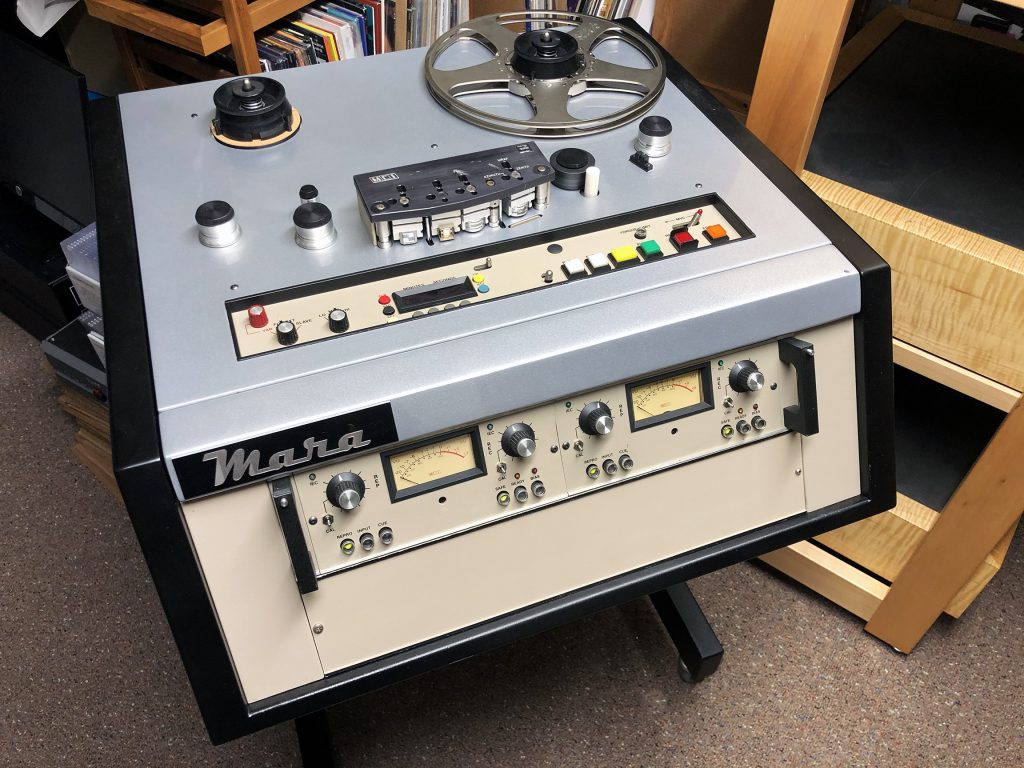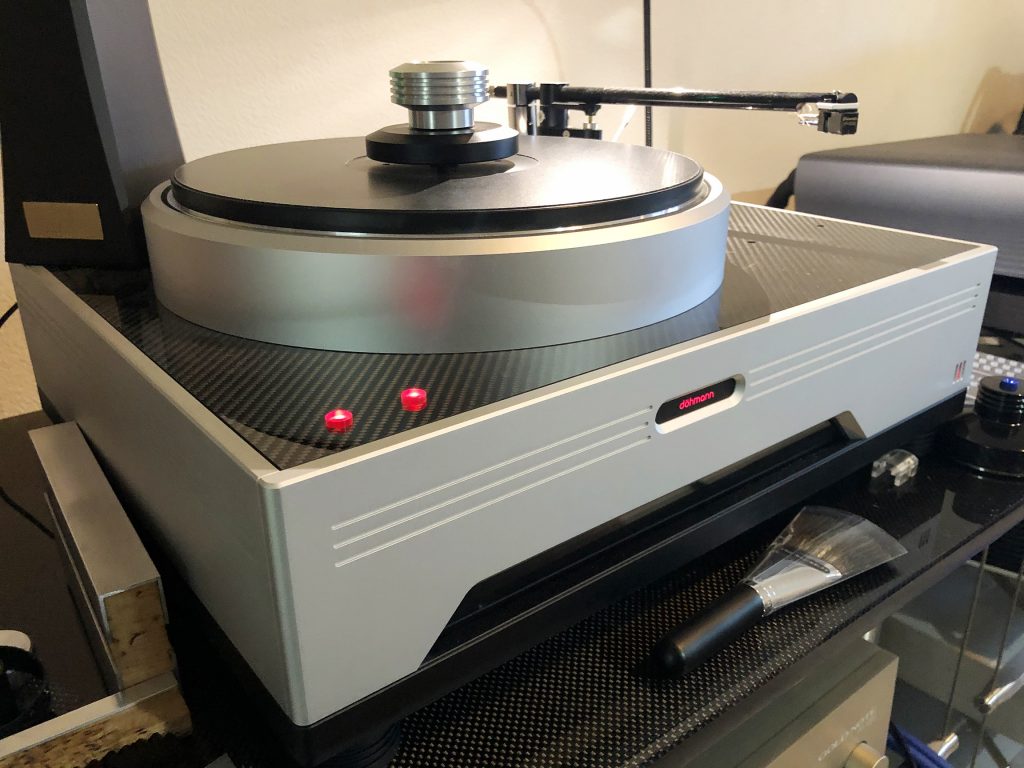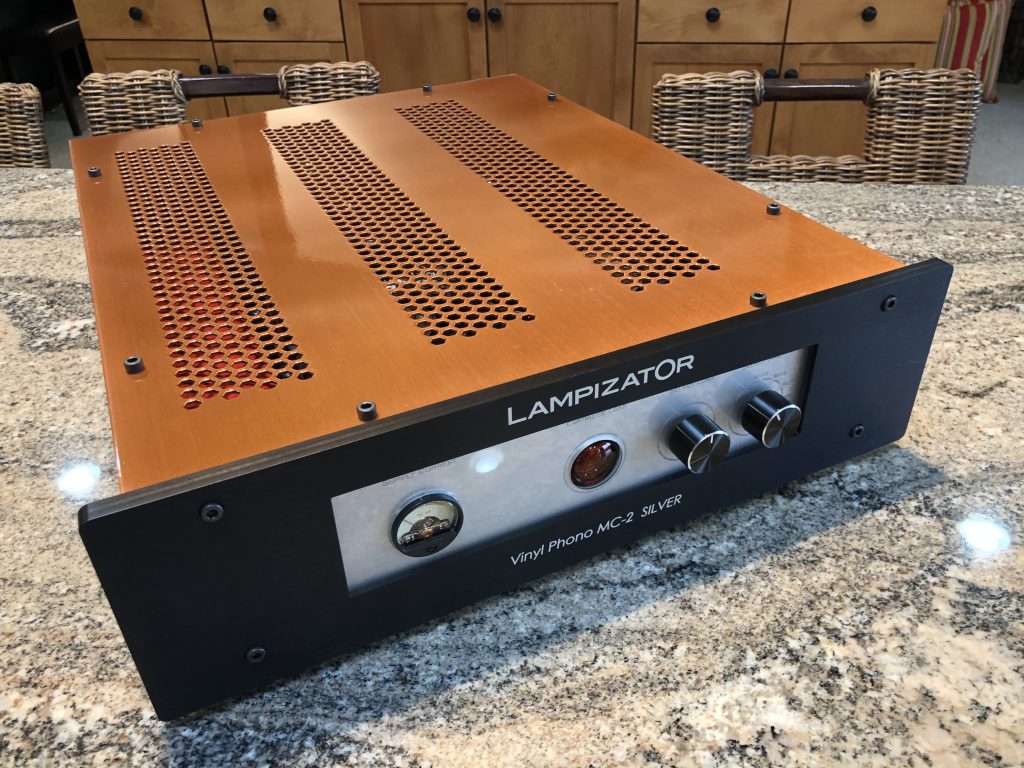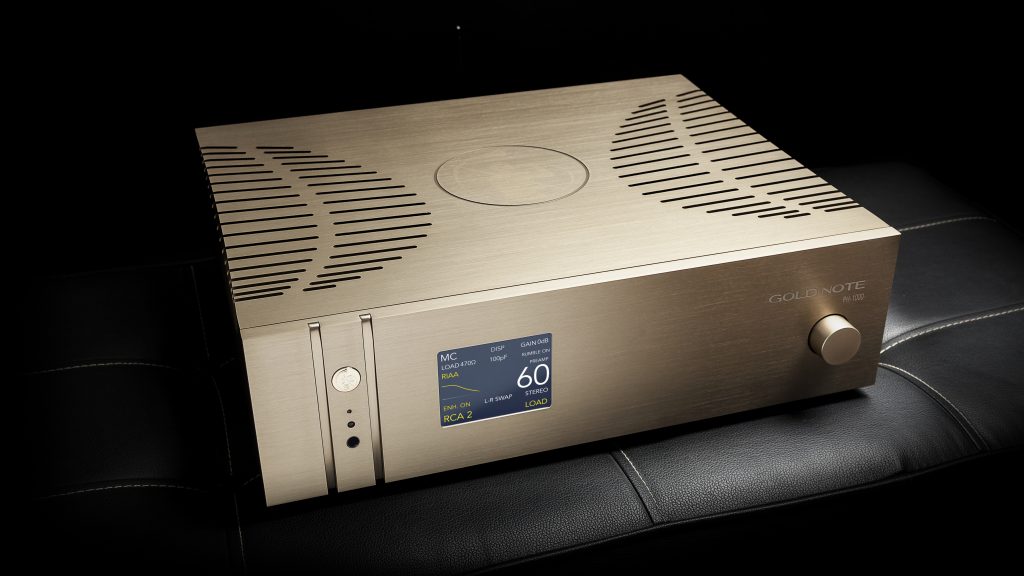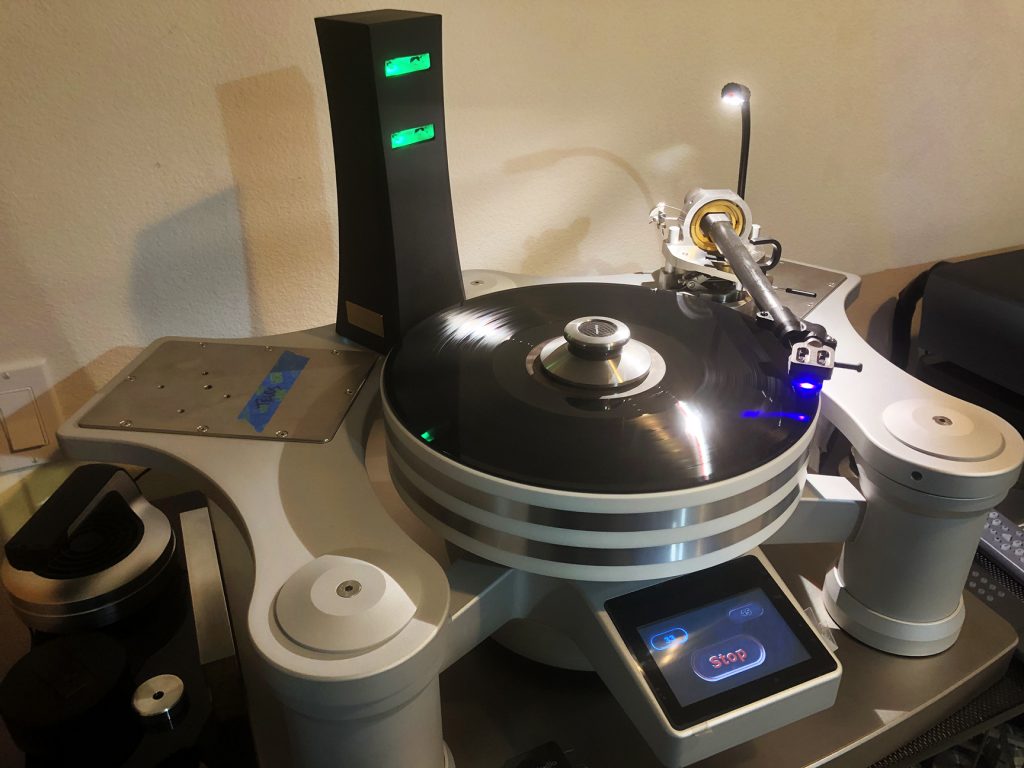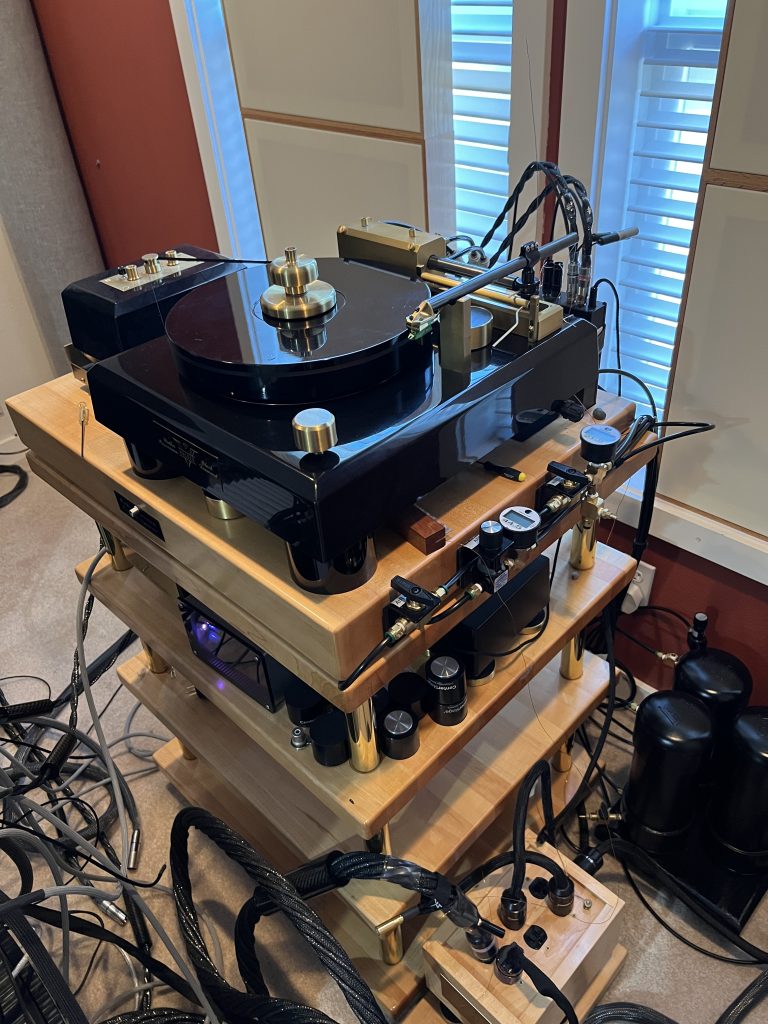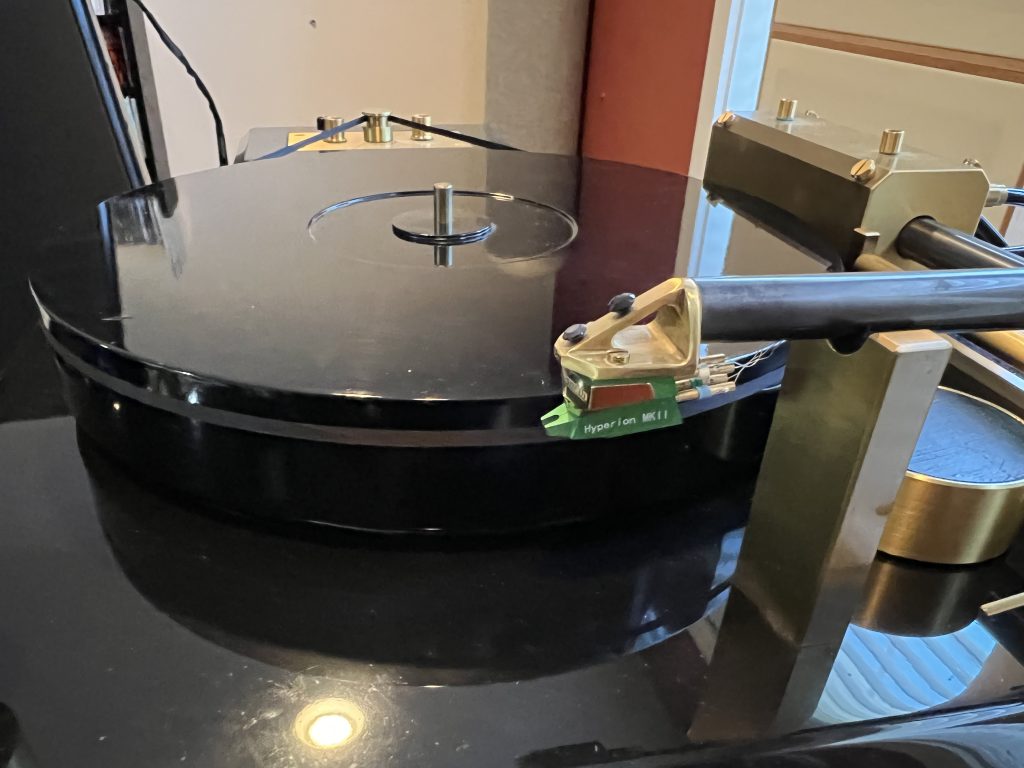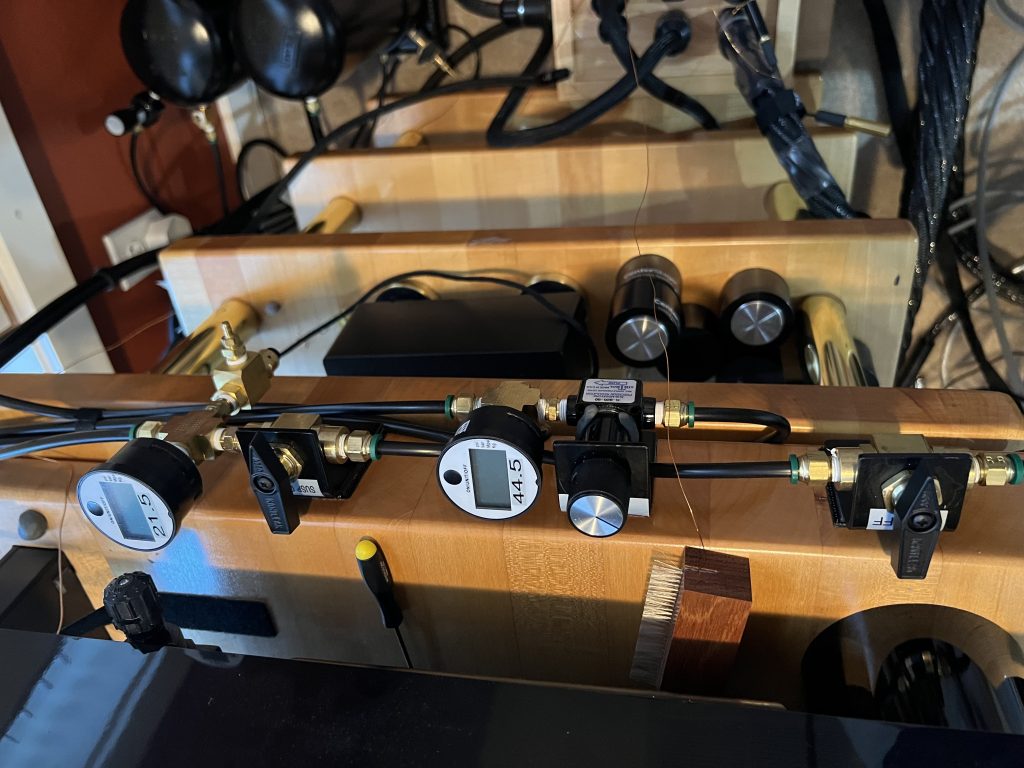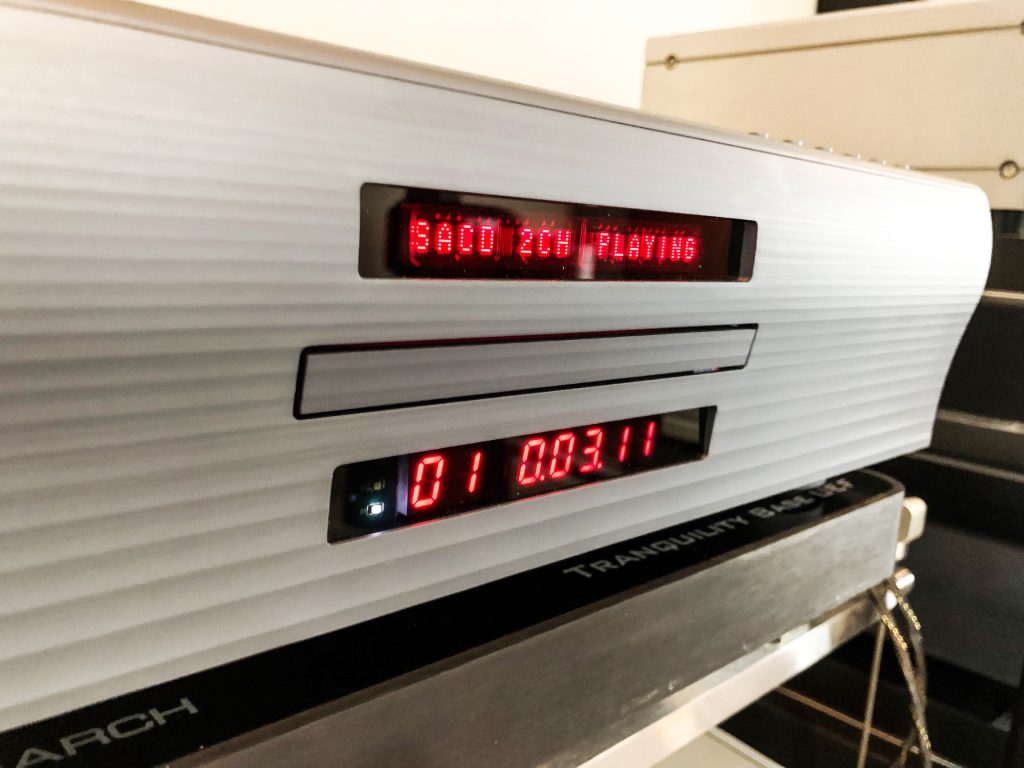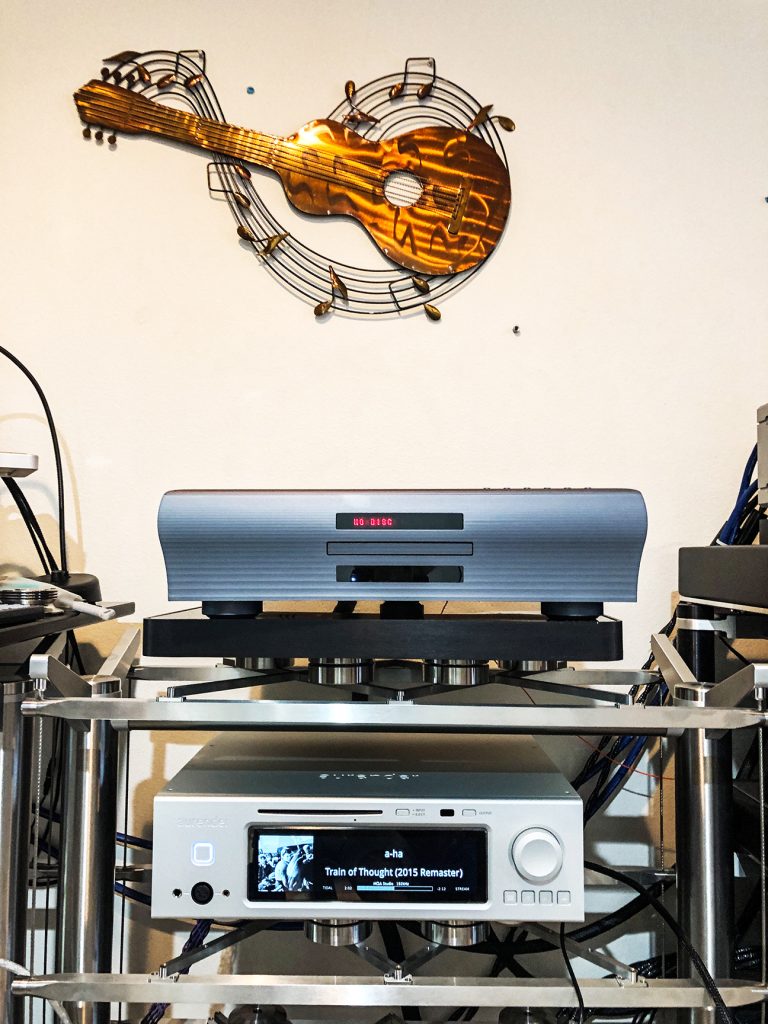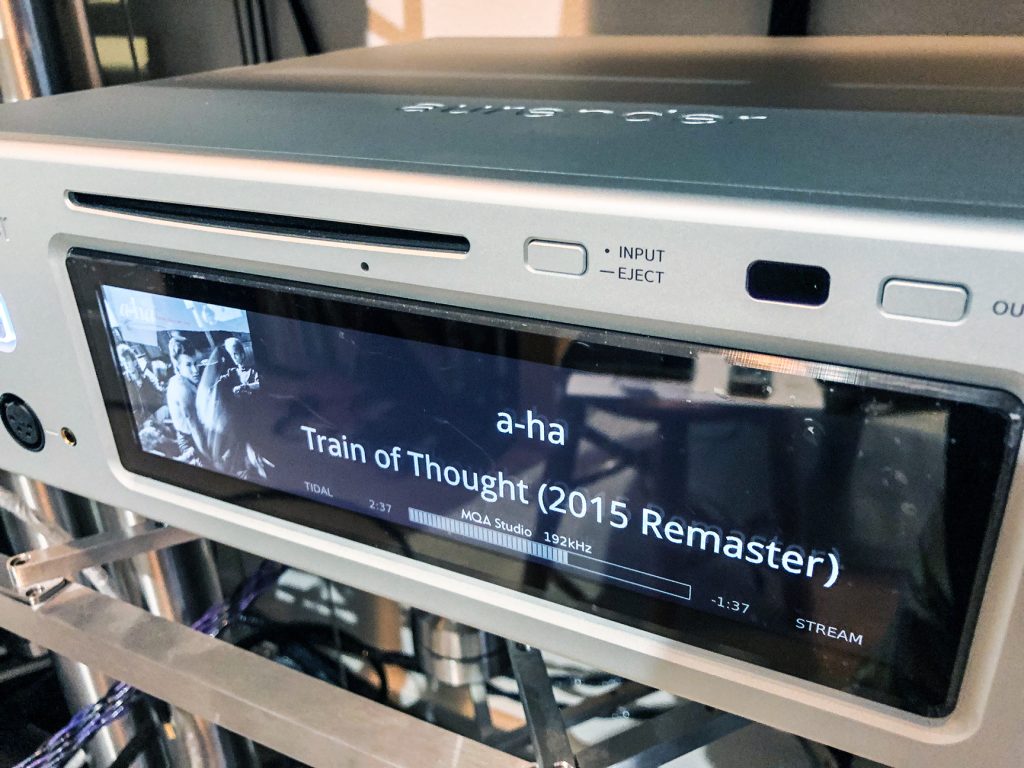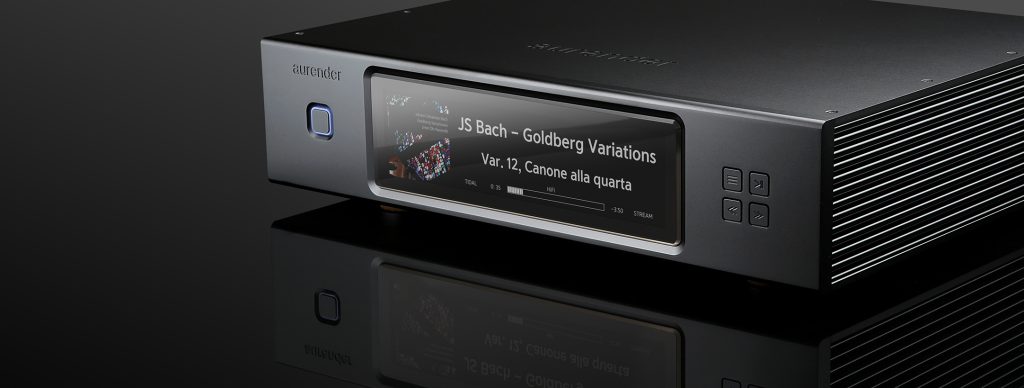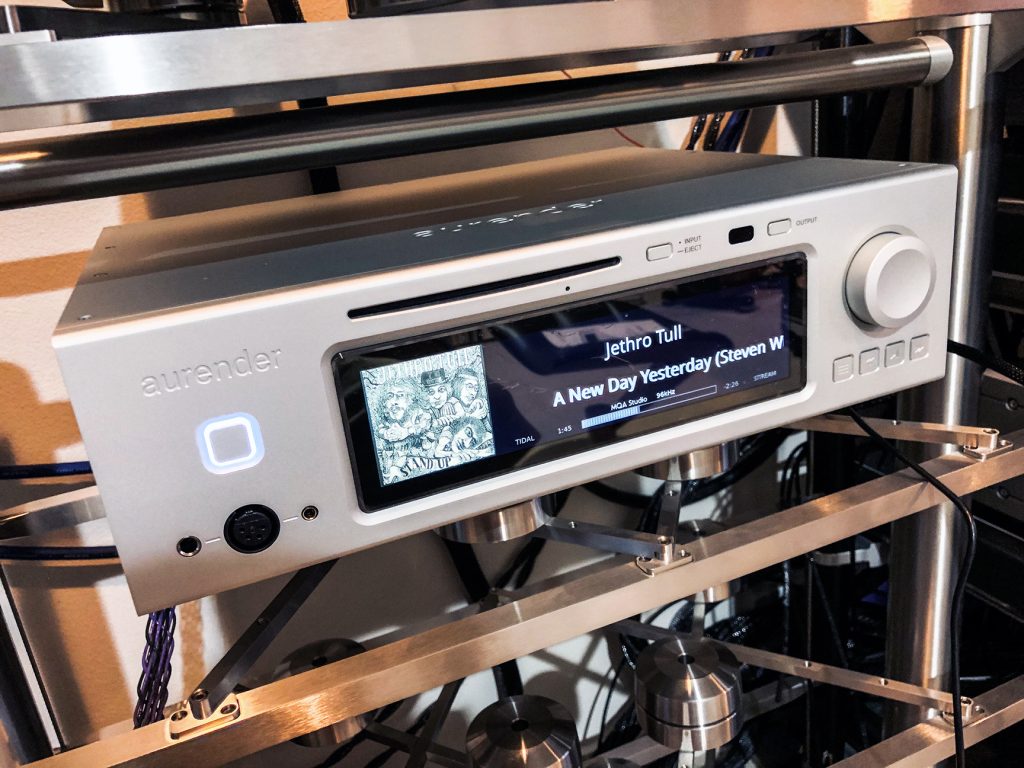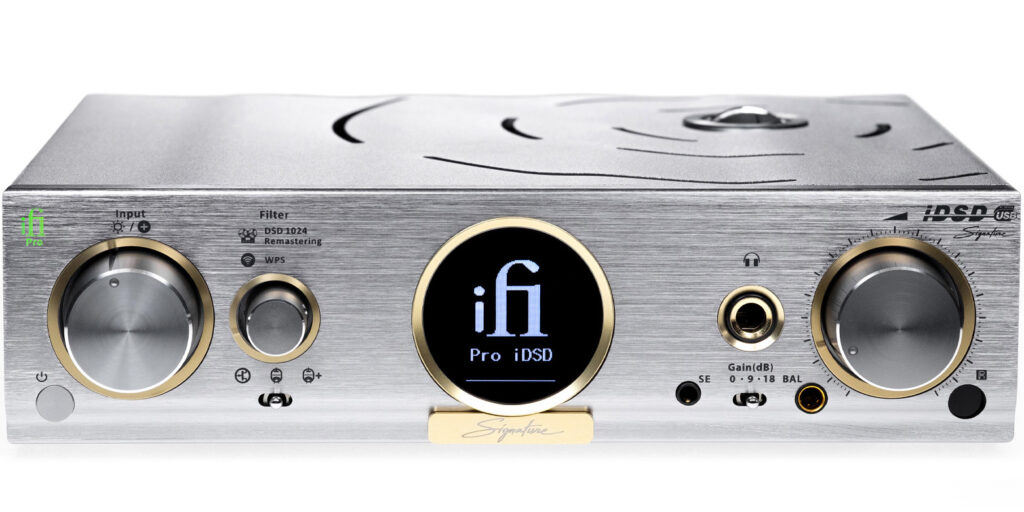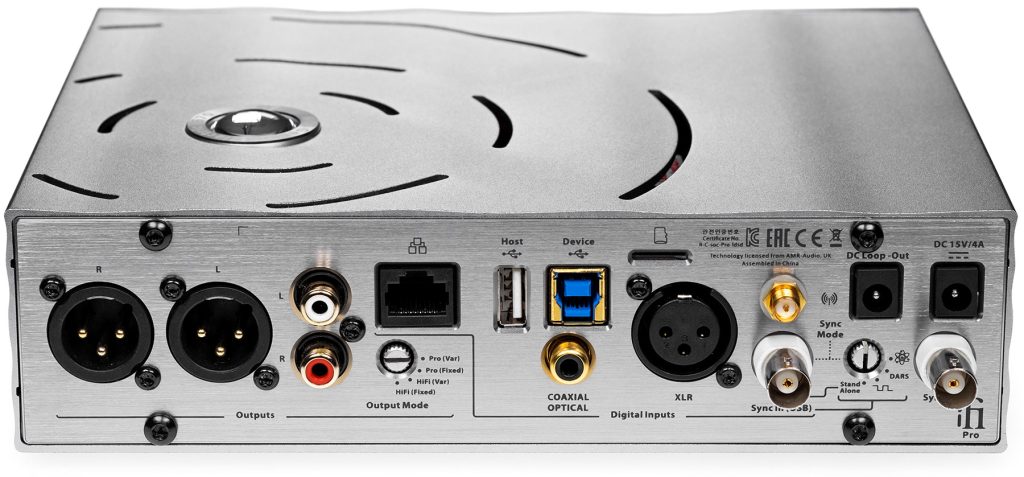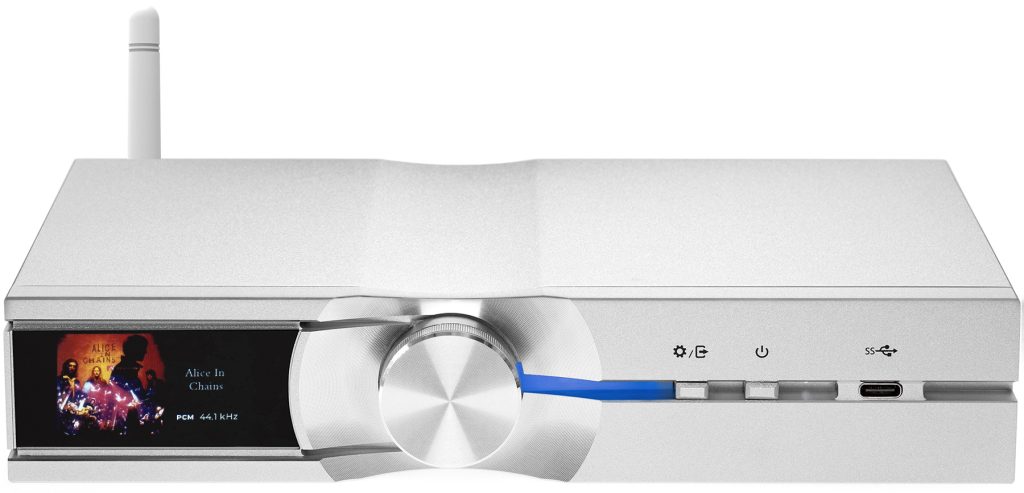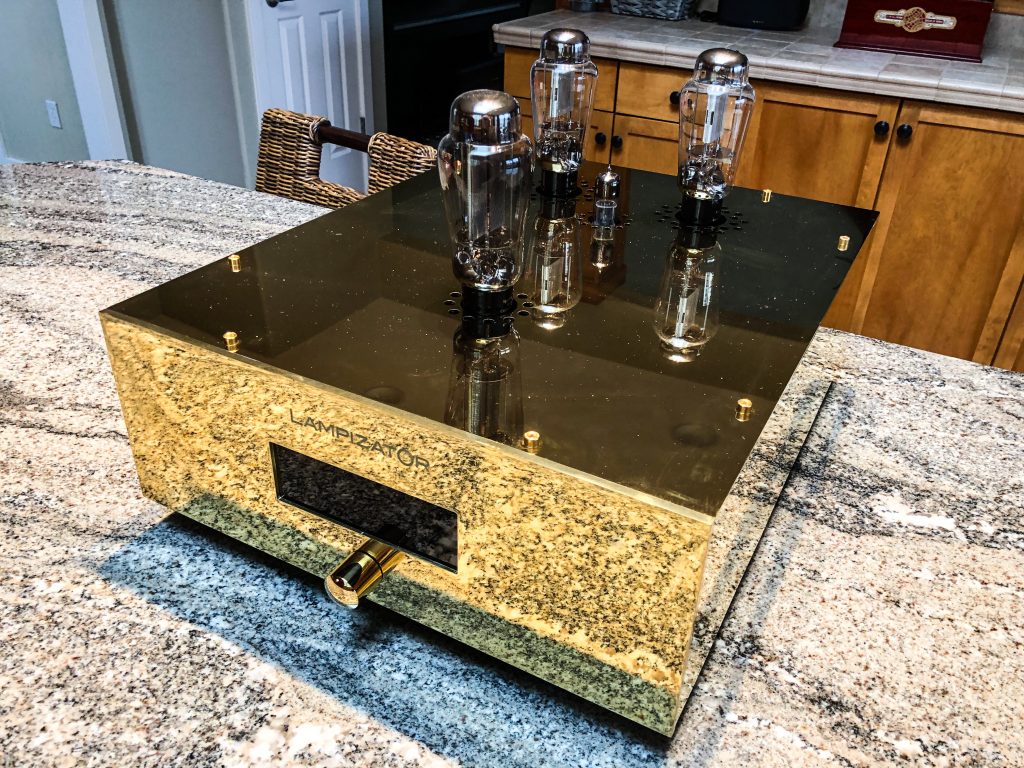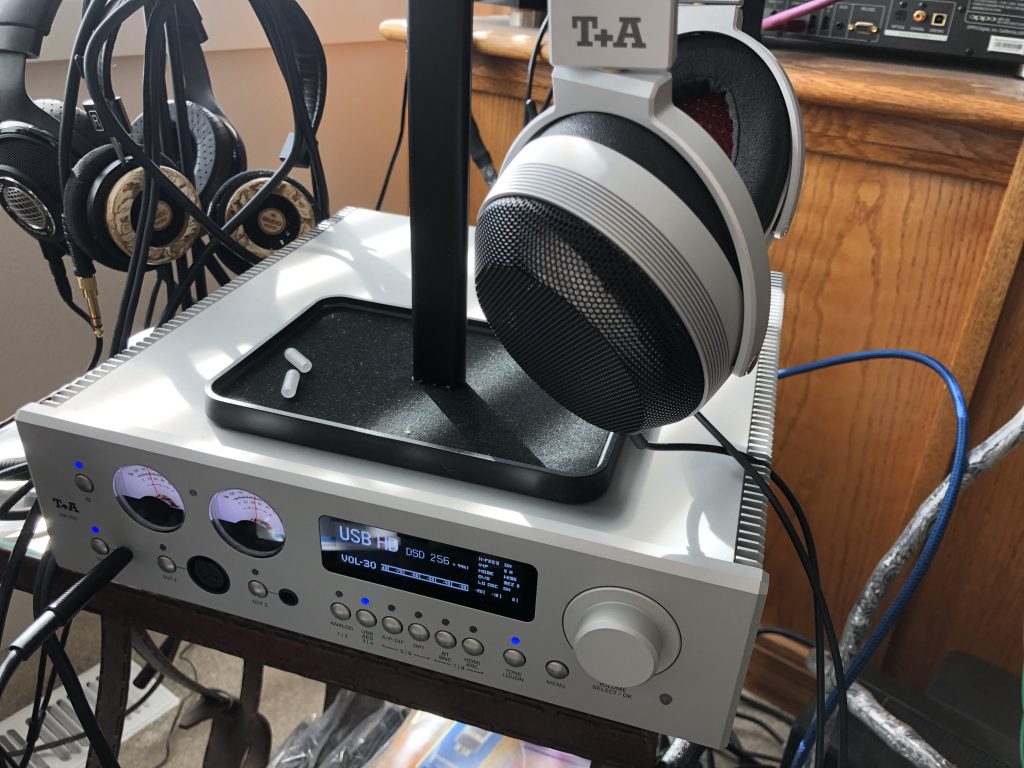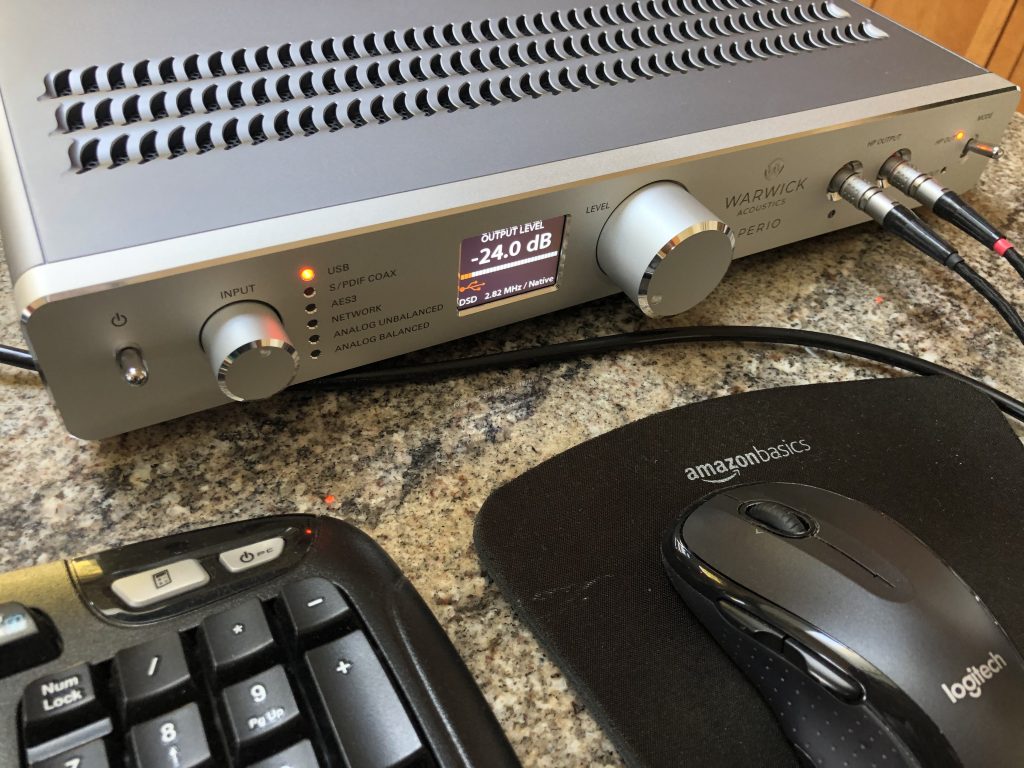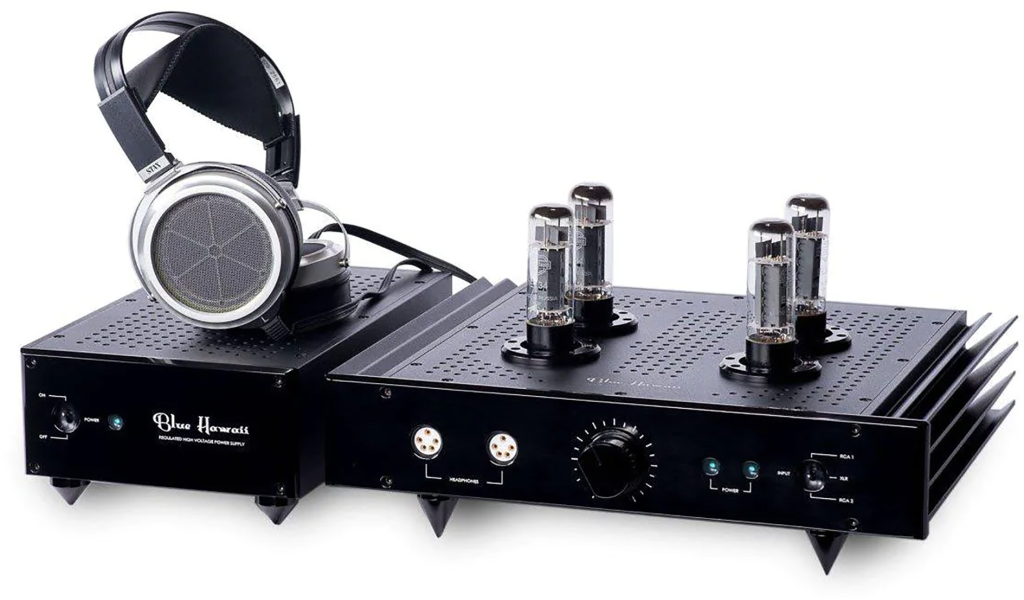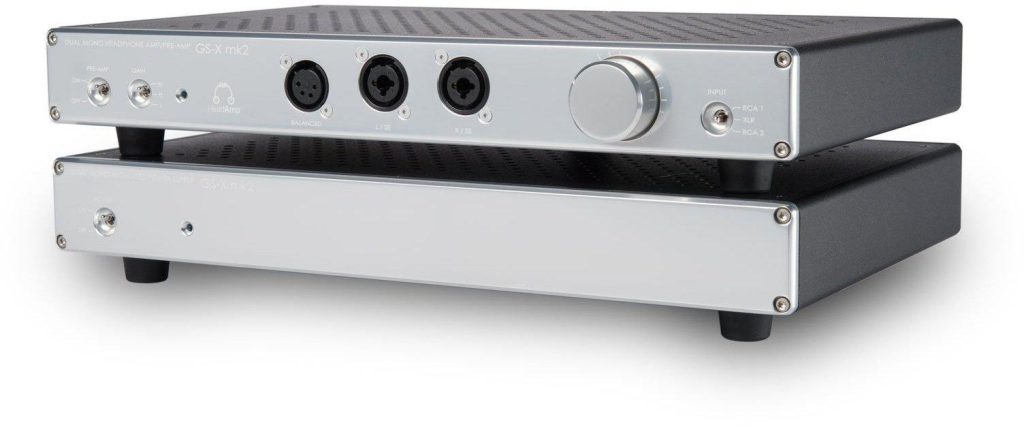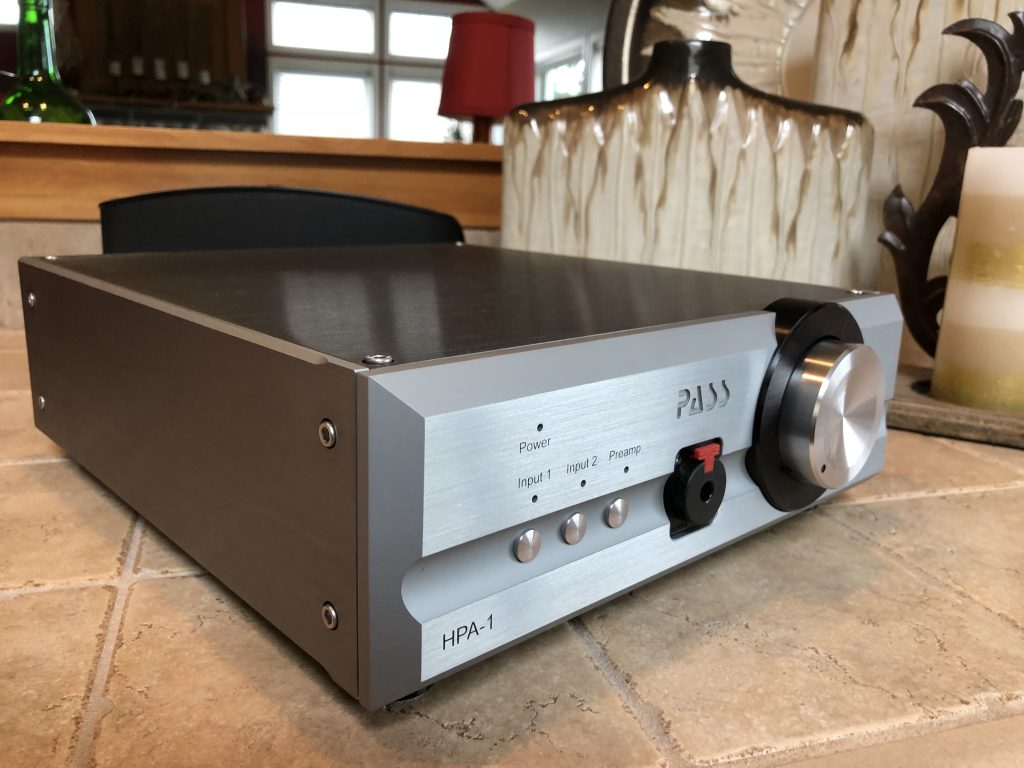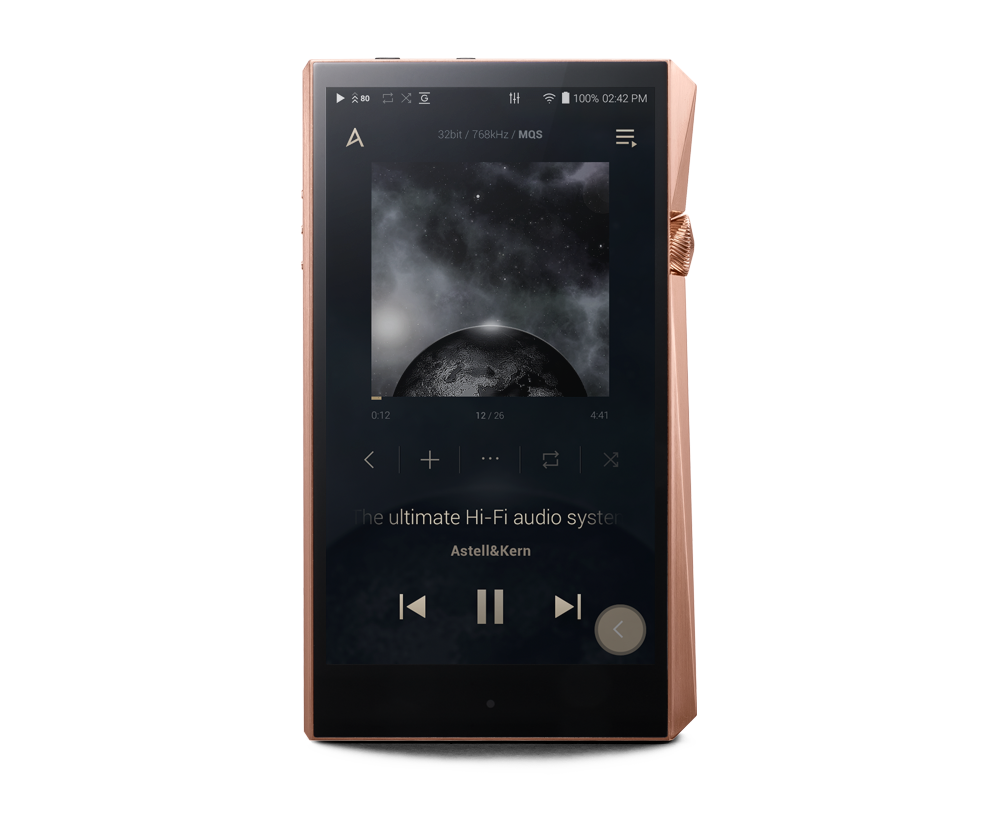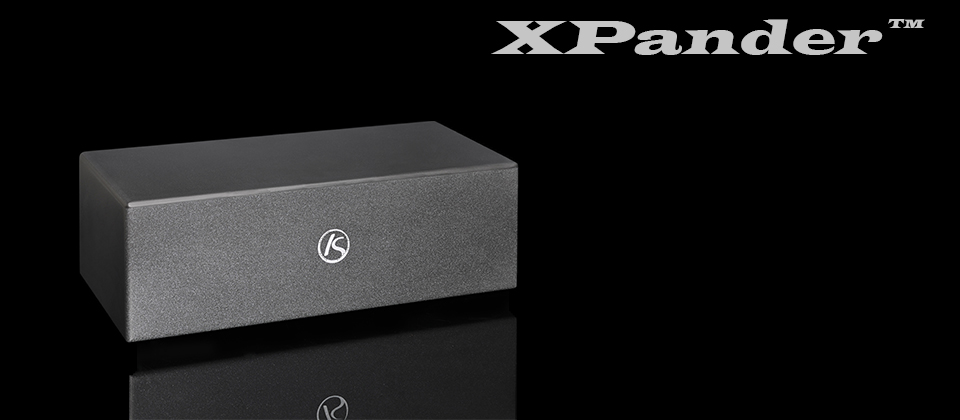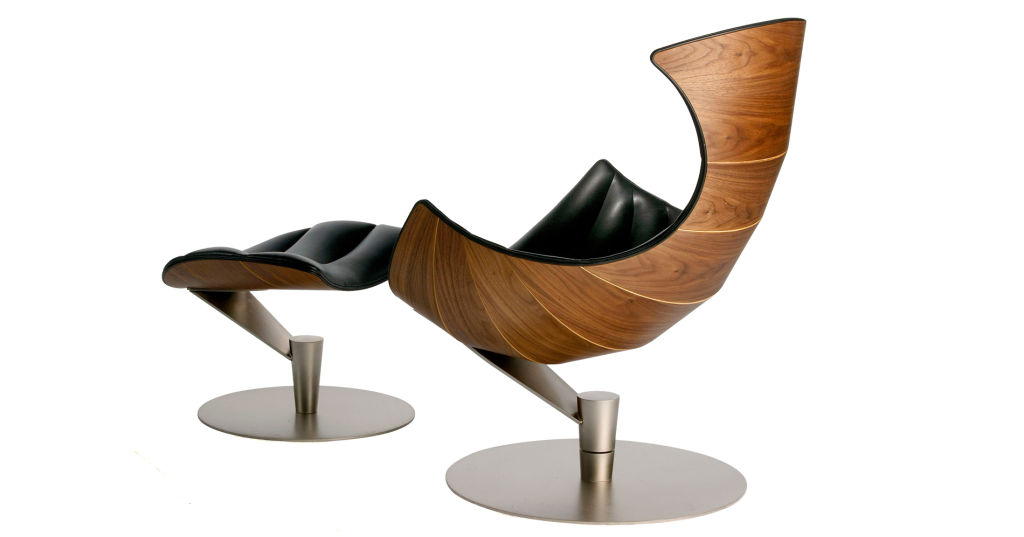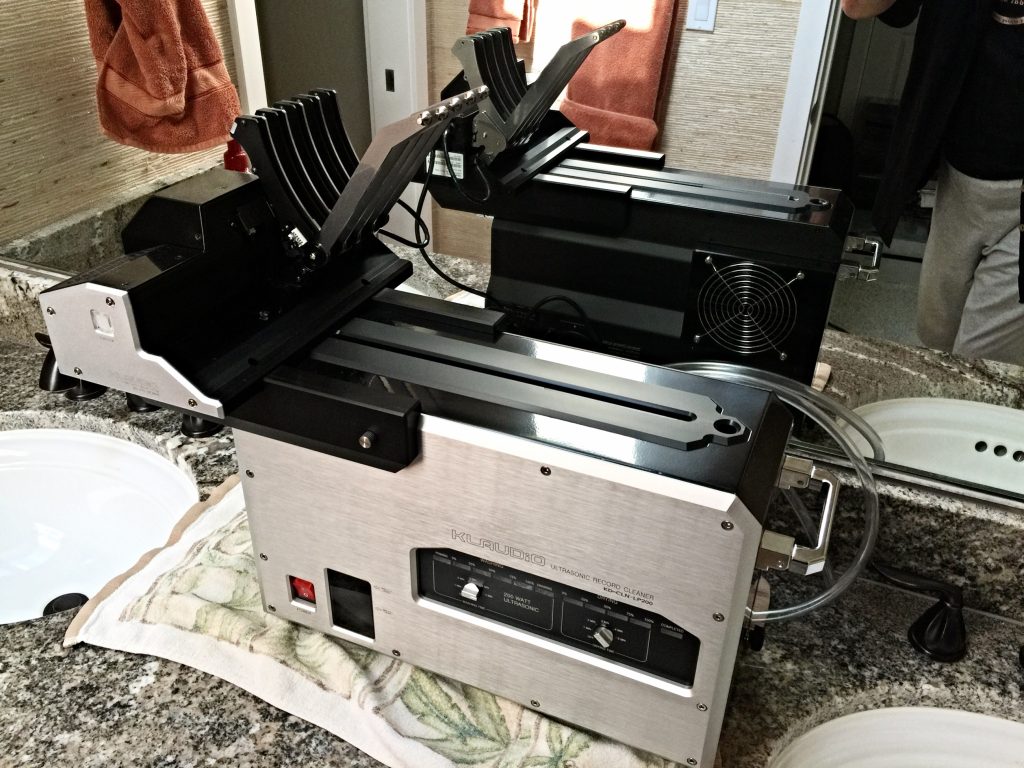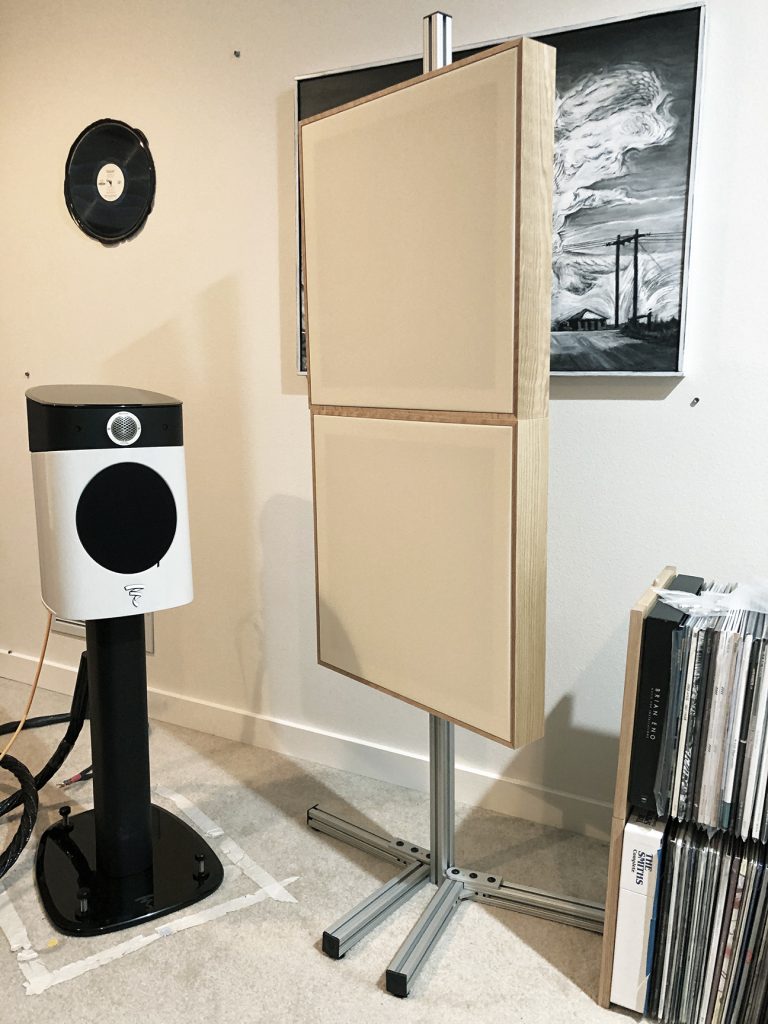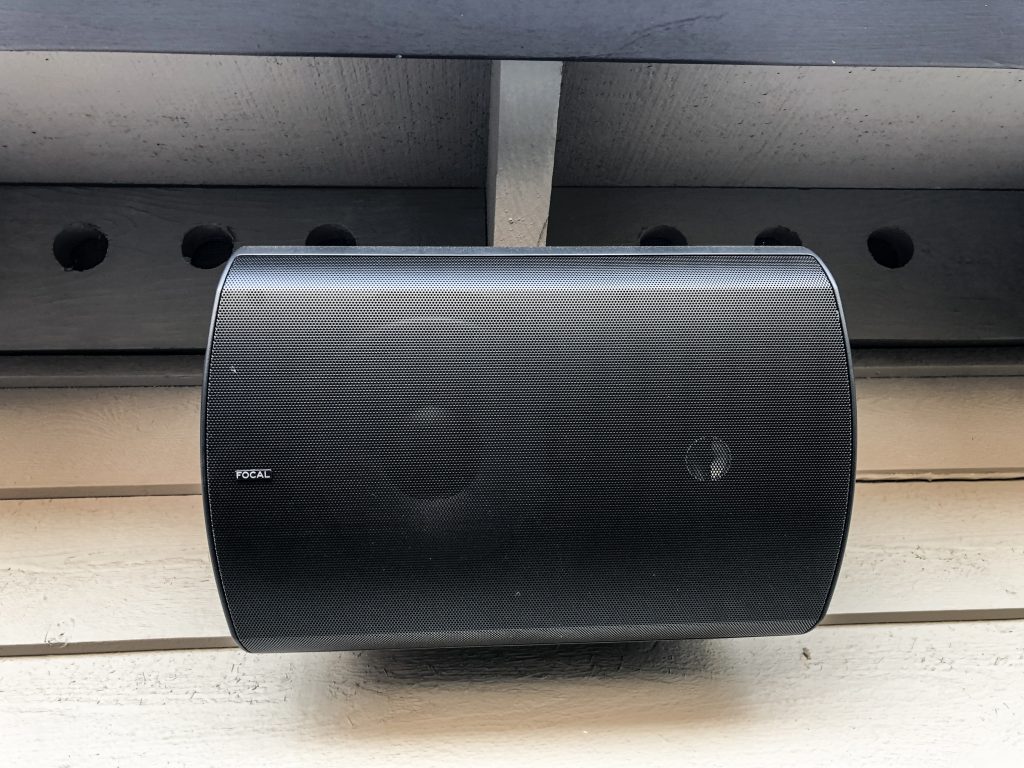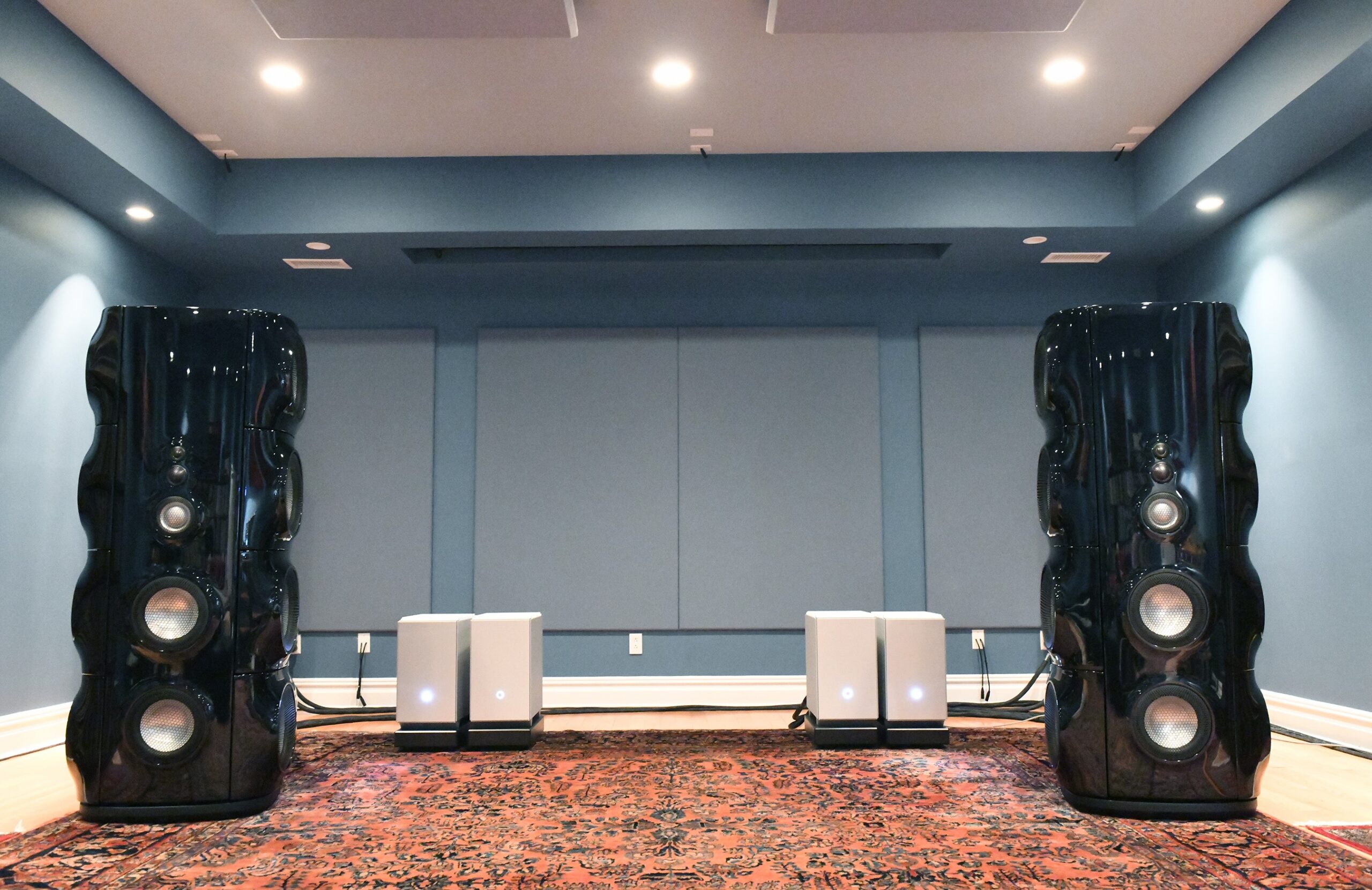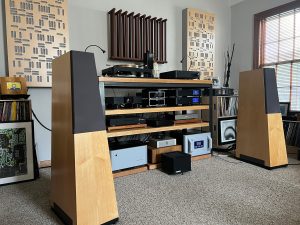
Ye Olde Etc. enjoying the moment in the Pacific NW (portrait by John Robinson)
Time for Part the Second of my Brutus Awards.
iFi Audio Pro iDSD DAC/Headphone Amp/Streamer
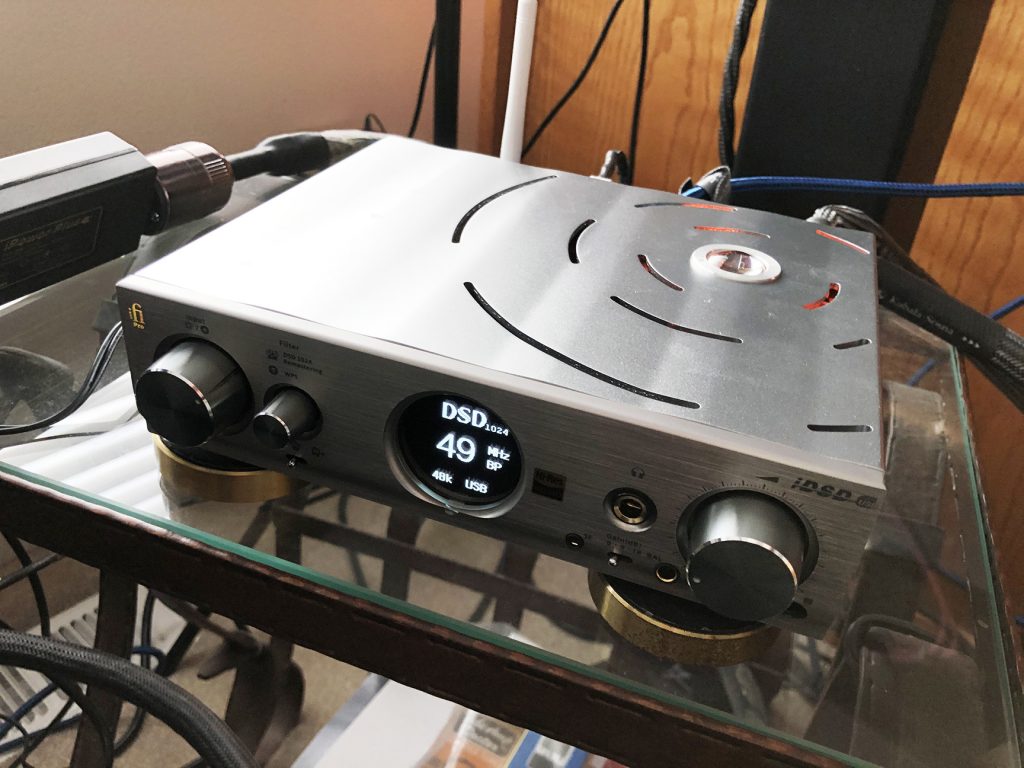
The iFi Audio Pro iDSD DAC/Headphone Amp/Preamp/Streamer (photograph and image processing by David W. Robinson)
Earlier this year, iFi Audio sent along their new pro-grade many-in-one DAC for my evaluation. When the iFi Audio Pro iDSD arrived, I immediately put it into our desktop reference listening space.

(Image courtesy of iFi Audio)
The Pro iDSD is a remarkably compact, highly capable design, with a host of surprising features that are operating at a high level of performance. The major elements of this design include an ultra-powerful DAC array and FPGA; a headphone amp with balanced and unbalanced outputs (3.5mm and 6.4mm); switchable gain for the headphones; both tubed and solid-state output, switchable upon demand, with both standard tube output and tube+ (filtering option); USB for hard-disk access; wireless; AirPlay; balanced and unbalanced output; micro SDHD slot; gigabit Ethernet; USB slot; Display Port; etc., etc., etc. And etc.
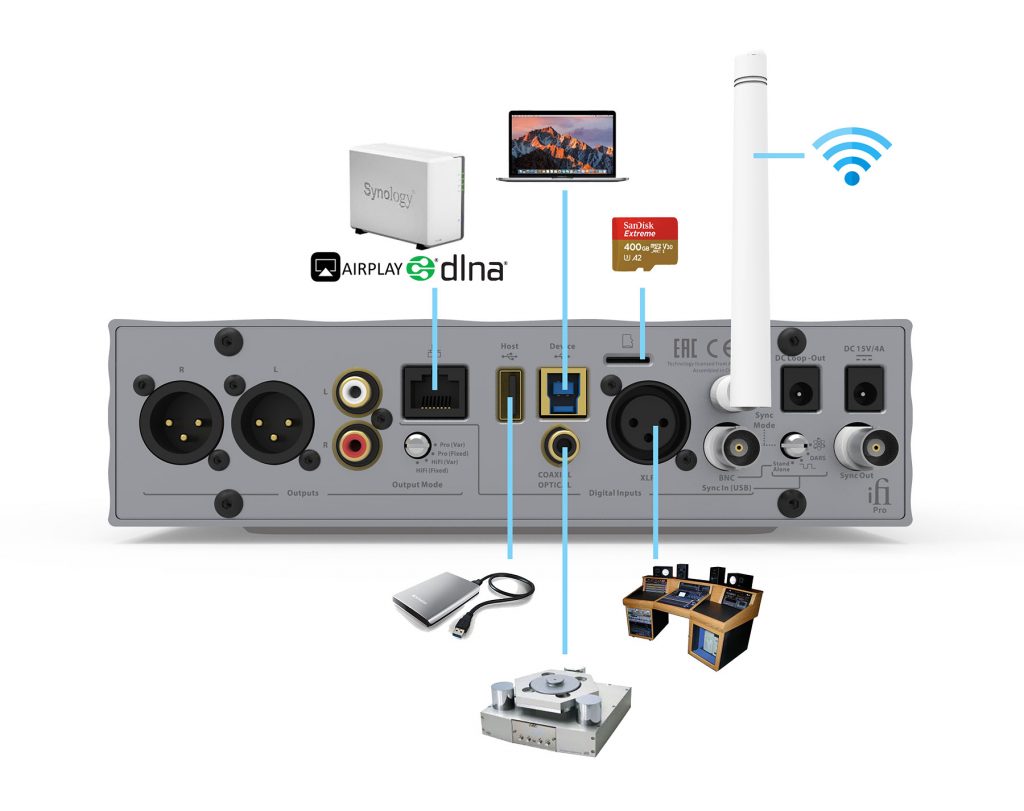
(Image courtesy of iFi Audio)
Damn! There are simply too many features to cover in this Brutus Awards article; for a summary of the host of capabilities of the Pro iDSD DAC, go to iFi's site for details.
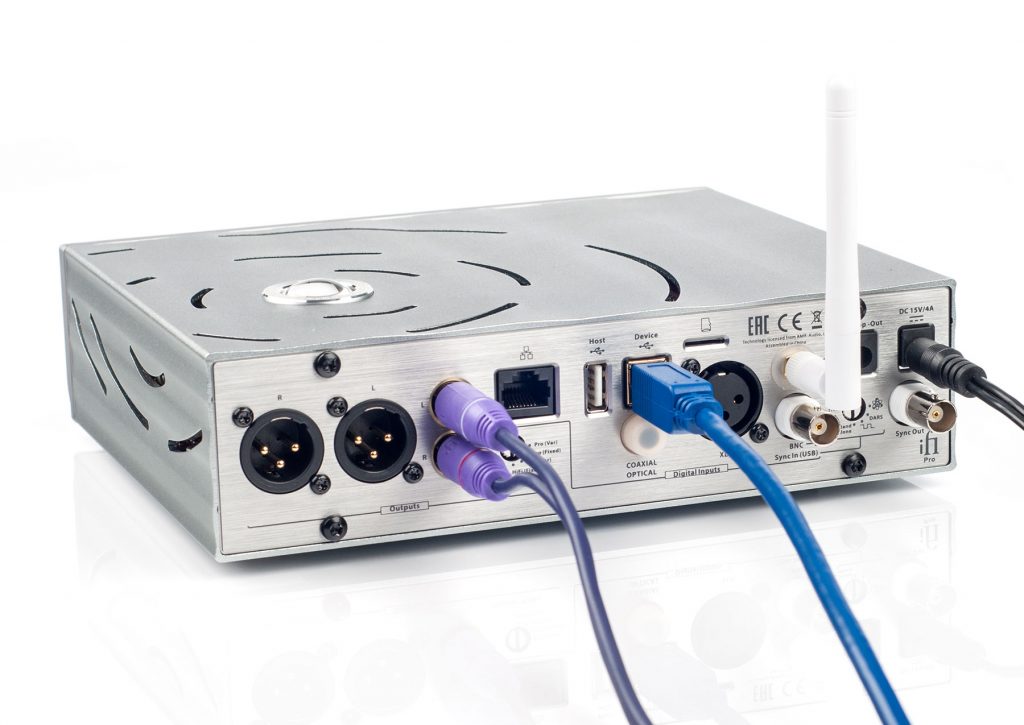
(Image courtesy of iFi Audio)
But there are some notable highlights for me. First of all, the Pro iDSD includes a DAC that will operate at up to DSD512, and will upsample PCM and DSD64-DSD256 to DSD1024(!). It has just about every filtering option that you could want to try, plus Bit-Perfect as a default. The processing power of the CPU+FPGA was able to handle every bit of digital audio that I tried, from DSD64-DSD256 upsampled to DSD1024 (love that 1024!) to every flavor of PCM and DXD ventured. (Note that the Pro iDSD also does 2xDXD.) No problems. I remained hard wired in my time with the Pro iDSD, but its WPS wireless is available to those who need it. The input selector knob, filter knob, and the silky volume control feel very solid; the switches for gain, output mode, and the backside output mode selector all work very well.
And the sound from this amazing collection of features is truly surprising, with every type of source that I tried with it (DSD of all resolutions, PCM ditto, and DXD), punching way above its weight, especially at its mind-boggling retail price point of $2749 (with lower prices down to $2,499 being pretty common on the Internet). At this number, acquiring the iFi Pro iDSD becomes irresistible…very close to the much overused "no-brainer" category…to all but the most penny-pinched audiophile. (Please. No complaints about the price.) And even they should consider queueing up for this one.
Frankly, I see iFi Audio as taking over the crown of "the Swiss Army knife" of high-end audio from the departed and lamented folks at OPPO Digital. With the Pro iDSD, I duly dub them with that title.
(Now if iFi would only essay an SACD/DSD player!)
No doubt about it: the iFi Audio Pro iDSD is a grand-slam, fully worthy of one of my Brutus Awards for 2020…with great enthusiasm!
Done!

Ideon The Absolute DAC

Ideon's The Absolute DAC (image courtesy of Ideon)
A handful of months ago, Michael Vamos of Audio Skies approached me about a new DAC that he had taken on from Ideon. They were a high-end digital company located in Greece that he said had come up with a truly phenomenal-sounding no-holds-barred design. I had to confess that I had never heard of them. Michael assured me that The Absolute DAC had knocked him out, and that I should definitely give it a careful listen.
Well, since nothing ventured is nothing gained, and since I had a (tight) slot in my review schedule at that time, I had Michael send The Absolute along to me.

The Absolute, rear view (Image courtesy of Ideon)
It arrived well packed in a Pelican professional shipping case, as is Michael's wont, and my strong preference, whenever I can get it. Good thing, too; The Absolute DAC, a one-piece unit, is heavy. Very. As in 58 lbs. unpacked.
Watch your back when you hoist it out. No kidding.
You can see in the above image that The Absolute features USB, BNC, and S/PDIF in, with both balanced and unbalanced output. A solid I/O set, but nothing too much out of the ordinary. It's what it does with it that elevates The Absolute to the front rank of reference DACs.
The specs of the Ideon DAC were quite impressive. You can find them at the Ideon site right HERE. There is a megaton here to like…built to the highest standards when it comes to the design and components used.
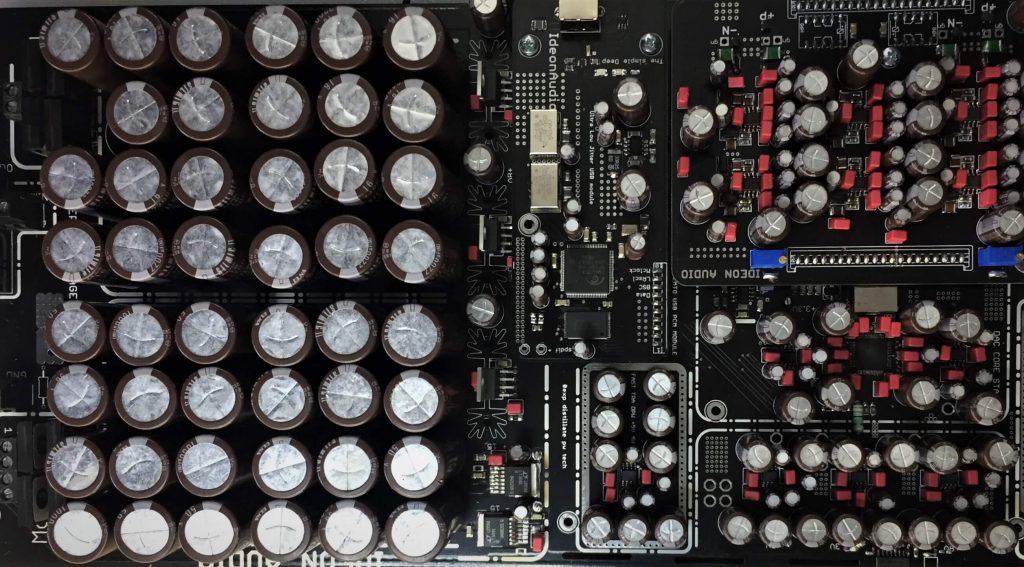
A look at The Absolute power supply (image courtesy of Ideon)
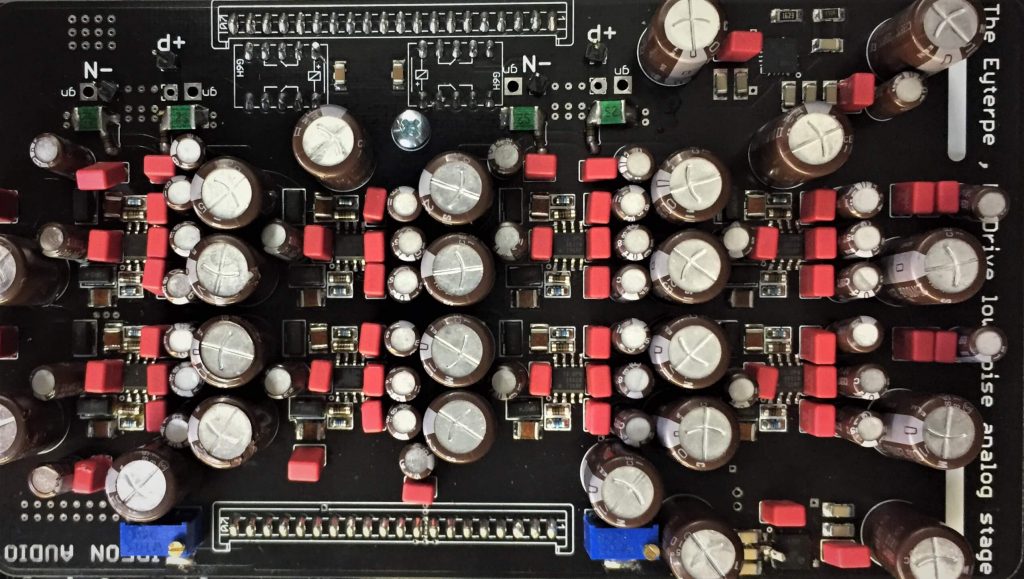
A glance at The Absolute's DAC power supply… (image courtesy of Ideon)

…while here's the DAC noise reduction section (image courtesy of Ideon)
Using the well-regarded ESS ES9038 chipset, three clocks, multiple power supplies, and custom USB and S/PDIF ports, The Absolute is a poster boy for "overbuilt." Resolution is supported up to 384kHz/32-bit on PCM, although with no support for MQA. The dynamic range is listed at a truly incredible 145dB(!) And my listening impressions clearly indicate that dynamics are no problem at all with The Absolute. Power, authority, and presence-to-the-max…take my word for it. The Absolute never tapped out in all of my time with it so far…not even close.
One side note that I must make: on the DSD side of the ledger, The Absolute tops out at Double DSD (DSD128) via USB. As I've made clear to Michael and Ideon, this is an unfortunate ceiling, in this world filled with megatons of Quad DSD (DSD256)…the current reference standard for recording and playback in DSD…and with NativeDSD.com now producing a number of DSD512 titles now. I have advised them to consider adding DSD256 to the capabilities of The Absolute. I would love to hear what this DAC would do with Native Mode DSD256. (Whether Ideon does so or not is entirely up to them, of course.)
Having said that, I will also state that the performance of Double DSD (DSD128) is simply astonishing in The Absolute. By 100-200 hours of continuous playback, courtesy of the Wolf Audio Systems Alpha 3SX Music Server (a 2020 Brutus Award winner listed in Part the First of these awards) and our Wolf Audio Systems custom QNAP 1273U NAS with RAID 5 (also a 2020 Brutus Award winner), The Absolute had bloomed brilliantly. The DSD performance was flawless, and the PCM that I listened to was likewise very solid. As the weeks went on, The Absolute cast a real spell on me. There's something quite seductive in its authoritative presence and ease that makes you lean back into your listening chair (in my case, the superlative GamuT Lobster Chair) and just take it all in. I have to admit that the quality of the sound…the transparency, the detail, the dynamics, the three-dimensionality of the soundstaging, and the sonic authority…made the absence of DSD256 much easier to bear.
As to price: well, this is Ideon's reference DAC at this moment, is a very serious piece of work, and carries a suitably reference-level MSRP of $34,900. Daunting, but I can assure you that you do get top o' the heap performance in return. The is definitely a world-class design and execution. Your wallet...my wallet...may not be up to "world class," which is always, alas, true. Nevertheless...
The Absolute DAC is back to Audio Skies right now, but I have been promised a return trip in 2021. I'll be reflecting on my longer-term impressions of Ideon's The Absolute in the first quarter of next year. At that time, I'll also include my evaluation of the other two Ideon reference-grade products that complement The Absolute: the Absolute Stream streamer ($16,500), and The Absolute Time Reclocker ($7,900). These together make up Ideon's reference stack.
For now, though, I can confidently award The Absolute DAC itself with one of my Brutus Awards for 2020. Truly delightful, this one….

exaSound Delta Music Server

exaSound is no stranger at all to my "Impressions" essays over many years now. I consider George Klissarov to be a true design genius in the realm of DSD-capable DACs, for both stereo and multi-channel playback as well as streaming devices.
Earlier in the year, George sent me a review sample of his Delta Music Server. During the time that the Delta was here, I used it in tandem with the exaSound e38 MkI DAC, an Audio Oasis! Award winner from 2017.
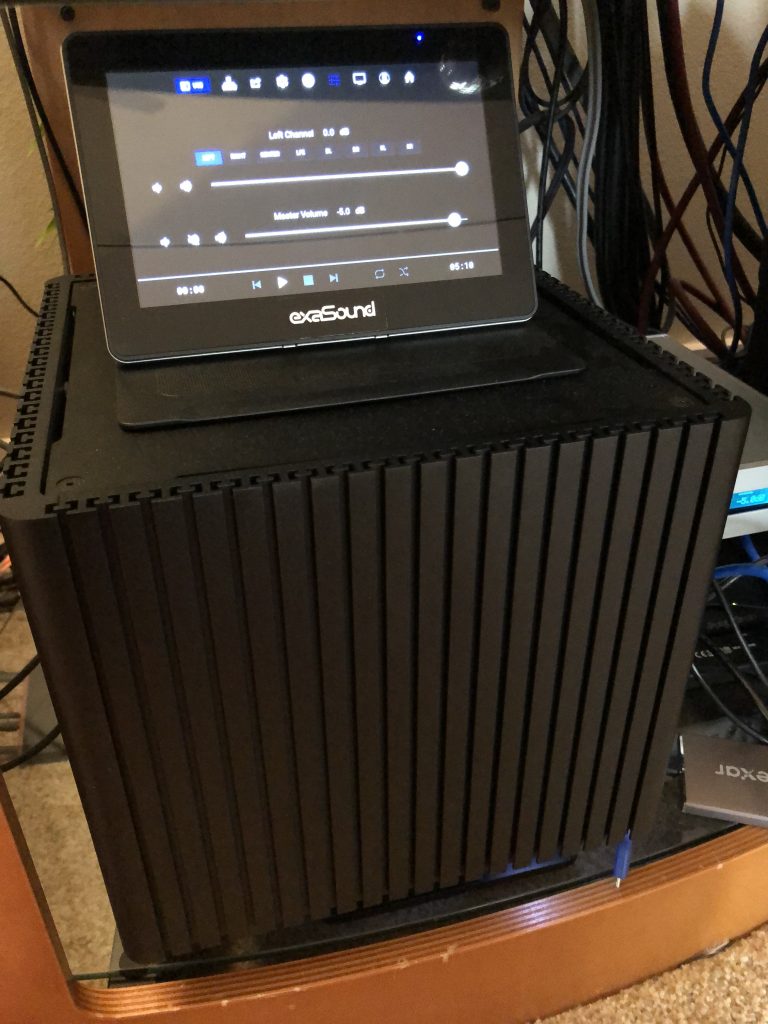
The Delta Music Server is a unique design, with a very distinctive look…not like anything I've seen before! Plenty of space for thermal dispersion, which its up-to-i9 multi-core processor needs. It looks like something out of a sci-fi flick…but boy, does it perform!

I particularly like the compact touch screen that allows for easy monitoring and control of various functions. Its internal configuration is very powerful, with multiple options available at the point of purchase. Roon is fully supported, and integration with exaSound DACs is complete.
Its specifications are impressive:
- CPU Intel 9th Generation i9-9900
Custom configuration options with Intel i3, i5, i7, i9 CPUs - RAM 8GB, custom upgrade options up to 32GB
- System SSD Drive 128GB, custom upgrade options
- Internal Storage Custom upgrade options
- Music Library Over 200,000 Tracks
- Roon Core Multiroom Capacity Over Five Zones, Typical
- Network Connection Gigabit Ethernet
- USB Ports 4x USB 3.0, expandable
- HDMI Audio Output, User interface for configuration settings.
- Display Port Audio Output
- Power Supply External, Input:100-240V / 2A, 50-60 Hz Output: 19V / 6.32 A
- Power Consumption 30-120W
- Chassis Premium Grade Aluminum extruded Panels Black/Silver Finish
- Dimensions 3 x 10.3 x 10.8 in; 260 x 260 x 275 mm (W x D x H)
- Weight 5 Kg / 21 lbs.
- Package Dimensions 356 x 356 x 405 mm; 14 x 14 x 16 in (W x D x H)
- Package Weight 5 Kg / 25.4 lbs.

But for the purpose of these Brutus Awards, there is simply too much else to cover in the space and time that I have. For the lengthy technical details of the Delta Music Server, go to the exaSound Web site HERE.
During the all-too-brief time that I had the Delta here, it performed like a champ with one of our Dell Windows 10 i7 notebooks here, acting as a Media Center server. Setup had been quick and easy, with USB connection to both the notebook and the DAC. I kept it at a simple single zone setup, though the Delta will handle up to five (a more powerful processor and more RAM will be necessary for that kind of load, though).

Running this setup through my Linn Kisto system controller in stereo mode, to the Linn 5125 multi-channel amps and the Linn Akurate 242 passive loudspeakers produced a very fine presentation of DSD and PCM source files. The greater power of the i9 configuration with 8 GB of RAM that I had was never overwhelmed by processing requirements, all the way out to Quad DSD. No muss; no fuss. (And yes, some streamers that I've tried have pooped out on higher loads. You won't see them in my Brutus Awards.)
My more extended comments on the Delta Music Server will appear in the future.
Meanwhile, I will give one of my 2020 Brutus Awards to exaSound's unique Delta Music Server.

exaSound e62 DAC

The exaSound e62 DAC (image courtesy of exaSound)
One other 2020 Brutus award for exaSound.
The new e62 DAC arrived relatively late in the year, courtesy of its designer, George Klissarov. Longtime readers of my Brutus Awards will know that I've been raving over the exaSound DACs for many years now; just use our PF search window to pull up my comments over the years.
The e62 is the replacement for the earlier e32 Mk I/II that has been a reference here for several years. It's the latest step in the succession of Klissarov designs running from the e22 to the e32 Mk I to the e32 Mk II to the e62. (For more information on the e62 specifications, see HERE.)

Now supporting stereo out to DSD512 (8x DSD), plus DXD out to 384kHz, plus MQA, plus PCM to 384kHz/32-bit, all with femto clock accuracy at 82ps, the e62 check all of the key boxes for me. It can be used in conjunction with exaSound streamers/music server-streamers like the Delta Music Server, their Gamma Server, or their Sigma Server to stream music at a first-rate level. Roon and MQA certification are there, with Qobuz and TIDAL fully supported. Ditto UPnP, mConnect, Signalyst, etc., etc. All of these work hand-in-glove with the e62, with setup being extremely easy. The ASIO drivers for the e62 are rock solid, as I've come to expect from exaSound…top-notch programming. I've been using it in conjunction with their now-discontinued PlayPoint streamer, with both the e62 and the Playpoint powered by the superior Teddy Pardo power supply for exaSound. The difference that the Pardo power supply makes to the performance of exaSound units is so significant that while it is listed as an "option," I am telling you that it is essential. Buy an exaSound; buy a Pardo. Simple as that.
The form factor is the same as earlier DACs in the series, but it's clear to me that the soul of the e62 has taken a step forward. I told George Klissarov that there was something musically superior in the e62 that was noticeably better than the e32, and that right out of the box. I've spent many years listening to exaSound DACs, and this is better.
There's more there there. More presence; more organic coolosity.
In sum, the e62 is a real winner, fully worthy of one of my 2020 Brutus Awards.
So given!
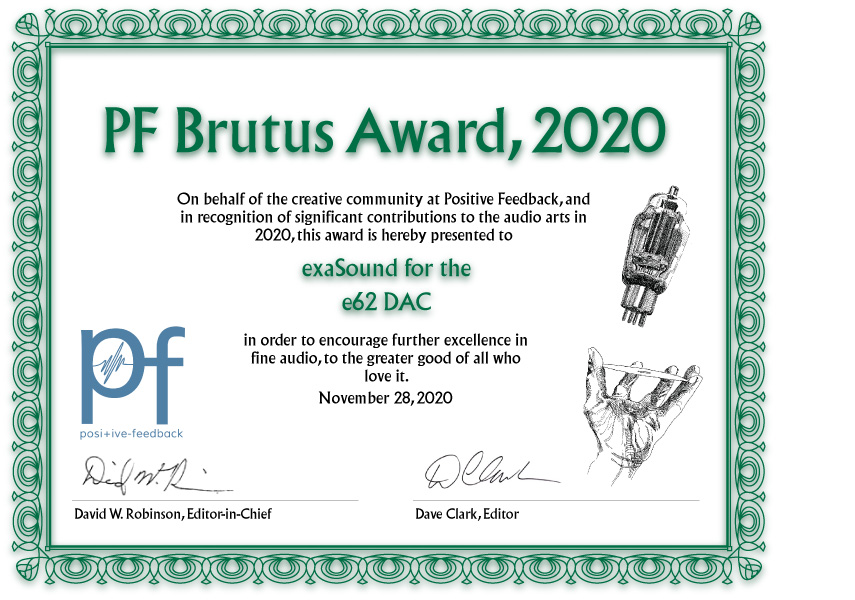
ModWright KW225i Hybrid Integrated Amplifier
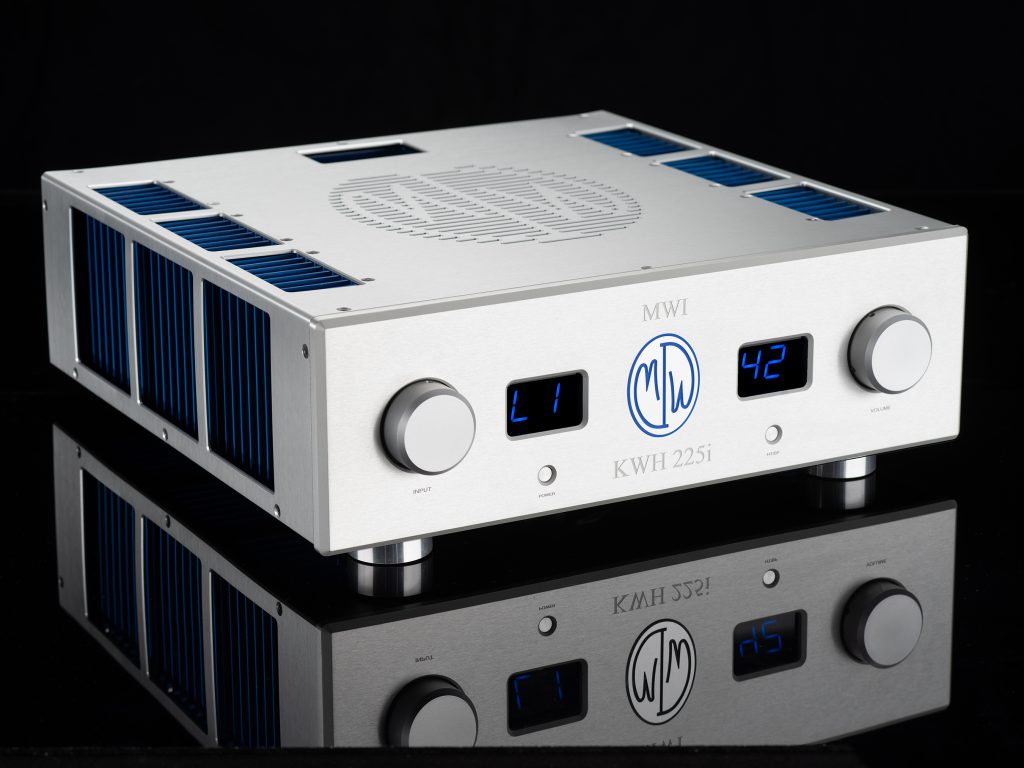
The ModWright KWH 225i Integrated Amplifier (image courtesy of ModWright)
In the world of integrated amps, there was another design that I've been watching since 2019, having an opportunity to listen for some time to a pre-production prototype. This was the authoritative, musical, and attractively priced ModWright KWH 225i. It was sounding extremely promising, and I told Dan Wright that I definitely wanted to hear the final production version when it was ready. He promised, and so it went onto my calendar.
The production version of the KWH 225i came along at the tail end of May in 2020. This is a powerful hybrid, with a proven tubed front end and a tried-and-true solid-state back end. The rated power output is a beefy 225 watts per channel. (For complete specifications, go HERE.)
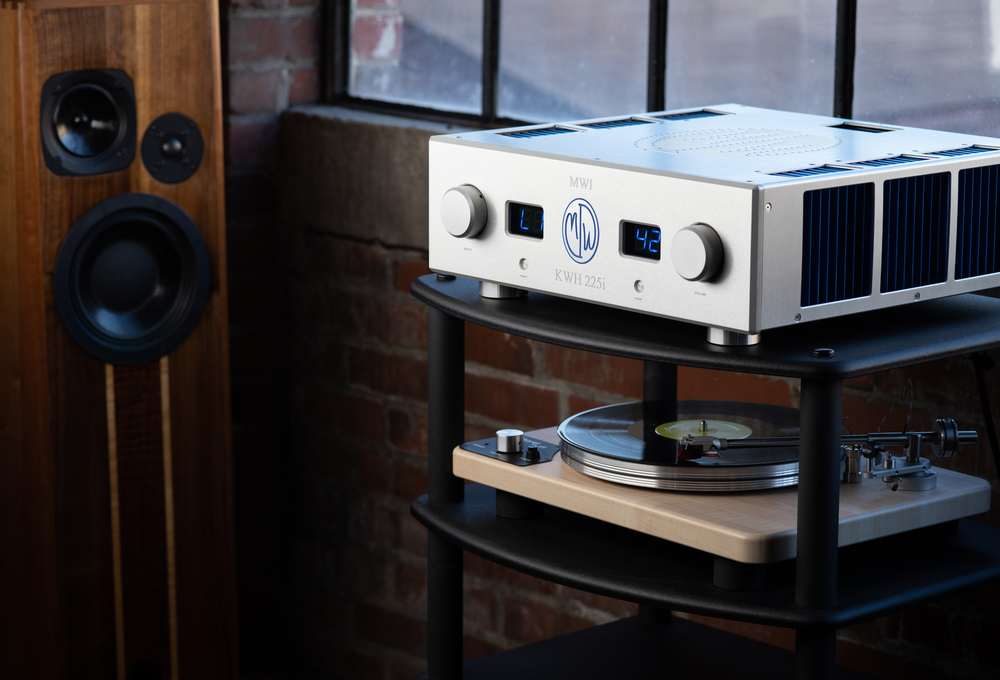
The I/O set and controls are nicely complete, there being three pairs of RCA inputs, one pair of XLR inputs, one pair of RCA Home Theater Bypass or Preamp Inputs, one pair of RCA Preamp-outputs, two pairs of 5-way loudspeaker binding posts. A tubed phono amp section is available as an option. The front panel controls include Input select, power, volume and Home Theater Bypass/Preamp. The accompanying remote control is solidly made of aluminum, matching the hefty construction of the integrated itself (the 225i tips the balance at 64 lbs….watch your back! Just ask the guy who knows….). The remote qualifies as a deadly weapon in the event of a home invasion…use with confidence!
The final production version of the KWH was evaluated very extensively, on a daily basis for several months, with inputs ranging from the exaSound DM reference streamer/DAC to the iFi Pro iDSD to the ModWright modded tubed two-box OPPO Digital BDP-105 SACD/CD player. Most of the music listened to was DSD, but I did do a fair amount of PCM streaming from Qobuz and TIDAL, as well. Output was via TARA Labs Omega Concerto SP loudspeaker cables and their Zero Evolution XLR interconnects. Power distribution and conditioning was via the Clarus Cables Concerto; the further end of the chain was the very fine Focal Sopra One monitor loudspeakers on their floor stands.
The results were clear: the KWH 225i took the incoming sources with ease, and made the Sopra Ones stand at attention, despite their middling efficiency. No tap-out; no pooping out. The high bandwidth of the 225i (20Hz – 100kHz at 0dB) provided excellent extension and a great sense of presence, especially with DSD128 and DSD256. I loved the dynamics of the 225i; it has real punch, with killer quickness. Soundstaging and imaging was very fine, varying with the input file type, of course. (DSD is always superior to PCM in this regard.)
I spent several months in daily listening with the 225i, and loved every minute of it. If you're looking for a great combination of price and performance in an integrated, with a base price of $8,500, then, my friend, you just may have arrived!
And so…a 2020 Brutus Award for the ModWright KWH 225i.
